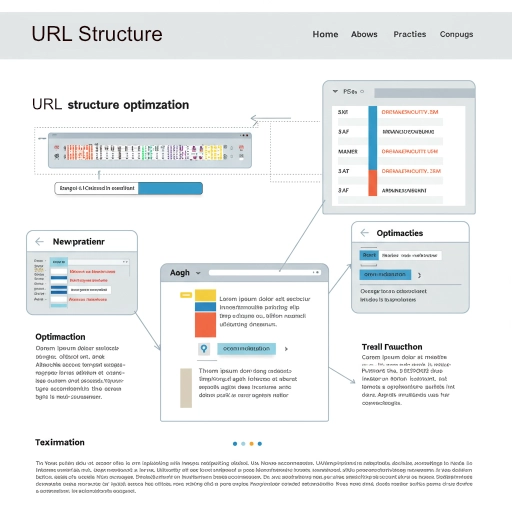
The Foundation for Search Engine Success
Technical SEO is a vital part of any effective search engine optimisation strategy. It helps to optimise your website’s structure, making it easier for search engines to crawl, index, and understand your content. While content and backlinks are very important, they won’t perform at their best if your website has underlying technical problems.
In this guide, we will explore the key elements of technical SEO. We’ll offer practical tips and actionable insights to help you create a well-structured website that ranks higher in search results.
Why is Technical SEO Important?
- Improved Crawlability: Technical SEO helps search engine crawlers easily access and navigate all the important pages on your website.
- Faster Indexing: A well-optimised website allows search engines to index your content quickly and accurately.
- Enhanced User Experience: Factors like website speed and mobile-friendliness, which are key to technical SEO, help create a positive experience for users.
- Better Rankings: By solving technical issues and optimising your website’s structure, you lay a strong foundation for higher search engine rankings.
Key Elements of Technical SEO
Website Speed
Website speed is an important ranking factor that greatly affects user experience. Slow-loading websites can lead to high bounce rates and lost conversions. So, optimising your website’s speed is essential for both users and search engines.
Mobile Optimisation
With most searches now happening on mobile devices, mobile optimisation is a must. Google’s mobile-first indexing prioritises the mobile version of your website for its rankings.
Sitemaps
Sitemaps act as a roadmap for search engines, helping them discover and index all your important pages. They are especially helpful for larger websites or those with complex navigation.
Schema Markup
Schema markup is a type of structured data that helps search engines understand the context of your content. Implementing schema markup can enhance your search results with rich snippets, improving your click-through rate.
Other Important Technical SEO Considerations
- HTTPS: Make sure your website uses HTTPS for a secure connection for users.
- Robots.txt: Properly set up your robots.txt file to guide search engine crawlers.
- URL Structure: Create clear, concise, and keyword-rich URLs.
- Duplicate Content: Avoid issues with duplicate content that can confuse search engines.
- 301 Redirects: Use 301 redirects to manage moved or deleted pages effectively.
- 404 Errors: Regularly check for and fix 404 errors to improve user experience and prevent crawl issues.
- Canonicalisation: Use canonical tags to indicate the preferred version of a page when dealing with duplicate or similar content.
Conclusion
Technical SEO is an ongoing process that requires regular attention and maintenance. By focusing on the technical aspects of your website, you build a strong foundation for your SEO efforts and help search engines better understand and rank your content.
Investing in technical SEO is an investment in the long-term success of your website. By optimising your website’s structure, you set the stage for higher rankings, more organic traffic, and an improved user experience.
Related Posts
Schema and Rich Snippets
Implementing structured data, or schema markup, is designed to help search engines understand your website's content and potentially earning rich snippets in search results. The table below provides a starting guide to the recommended schema types for common page types, like your homepage, blog posts, About Us, Contact, Service, Author, and Location pages. By correctly…

URL Optimization
URLs themselves are a relatively minor ranking factor compared to elements like content quality and backlinks. But a well-optimized URL can improve your site's visibility in search results, make it easier for users to understand your content, and even increase click-through rates. This is mainly because URLs influence SEO through their impact on user behavior.…

Frequently Asked Questions about Technical SEO
Listed below are some of the main areas you should have an understanding on about Technical SEO.
What is a sitemap and why do I need one
A sitemap is a file that lists all the important pages on your website, helping search engines discover and index them more easily. It is especially useful for large or complex websites.
How does HTTPS affect technical SEO
HTTPS encrypts the connection between a user’s browser and your website, making it more secure. Google considers HTTPS a ranking signal, and it’s also important for user trust and data protection.
What are Core Web Vitals and how do they relate to technical SEO
What is the difference between on-page SEO, off-page SEO and technical SEO
On-page SEO focuses on optimizing the content and HTML of individual web pages. Off-page SEO involves building your website’s authority through backlinks and other external signals. Technical SEO deals with the underlying infrastructure of your website. All three work together to improve your overall search engine rankings.
How can I improve my website’s technical SEO
You can improve your technical SEO by optimizing your website’s speed, ensuring it’s mobile-friendly, creating and submitting a sitemap, using schema markup, fixing broken links, and addressing any crawl errors reported in Google Search Console.
What tools can I use for technical SEO
Some popular tools include Google Search Console, Google’s PageSpeed Insights, GTmetrix, Screaming Frog SEO Spider, SEMrush, and Ahrefs.

